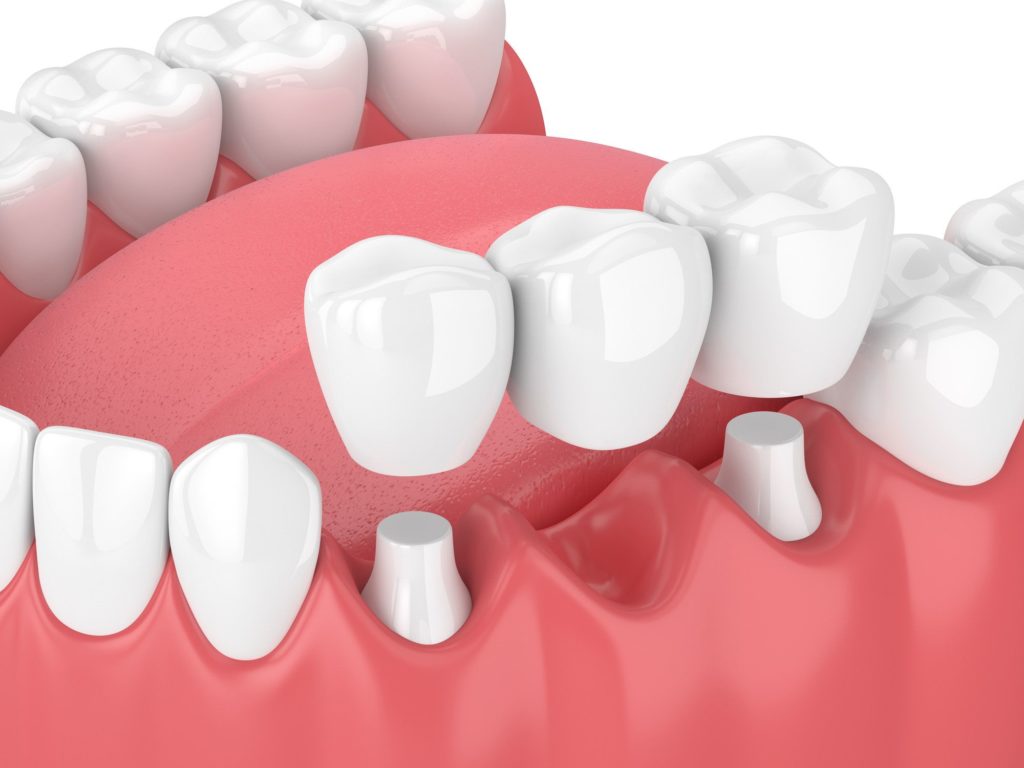Losing your teeth can be a scary time for you. While it is understandable to be overwhelmed, your dental professional team is here to help you. They can not only give you dental replacement options, but they can also reassure you throughout your teeth replacement journey.
If you are looking for a quick, permanent tooth replacement structure, you should consider dental bridges. Dental bridges are prosthetic replacements for missing teeth. By “bridging” the gap between your missing teeth, dental bridges restore the look and function of your smile.

Who Are They For?
If you have one or more missing teeth, you may be a candidate for dental bridges. One crucial factor in ensuring successful bridge implantation is having healthy teeth and gums. Dental bridges need a strong, healthy base to stay supported and work efficiently.
While having dental bridges, you must have excellent oral health. It is possible for your bridges to come loose, which may allow plaque and bacteria to build underneath the bridge structure. It may increase your risk of tooth decay and gum disease.
While it is not a completely limiting factor, serious chronic health conditions may limit your ability to support dental bridges.
Advantages of Dental Bridges
Dental bridges will give you back the look and function of your smile, including the confidence you may have lost.
Fixing the gap in your teeth will prevent future tooth loss from damaging the rest of your smile. When you lose one tooth, the rest of your teeth will shift in order to compensate for the lost tooth. Over time, this can affect your bite and the effectiveness of your ability to speak or chew food.
Unlike other tooth replacement options, such as dental implants, dental bridges are a non-invasive, non-surgical way to fix the gap in your smile. Dental implants have a long healing process that can take several weeks, if not months, to complete. With dental bridges, you can have your entire procedure completed within a couple of dental visits.
Dental bridges are permanent structures, which means you don’t have to take them out to eat or sleep—like dentures. Many patients find this to be convenient since it doesn’t alter their social lifestyles.
Disadvantages of Dental Bridges
There are some disadvantages to dental bridges, so it is essential to weigh your options.
Over time, dental bridges can damage the supporting teeth. This can increase the likelihood of developing tooth decay. Dental bridges may also chip your teeth during implantation.
It is possible for dental bridges to come loose after time. Even tooth decay can cause bridges to loosen. This can allow harmful plaque and bacteria to get underneath the bridge and cause severe issues with your gums.
Dental bridges are permanent structures, but they will need to be replaced in the future. Dental bridges last five to seven years on average, even with proper care and maintenance.
If dental bridges damage your teeth, it may lead to future tooth loss of your supporting teeth.
